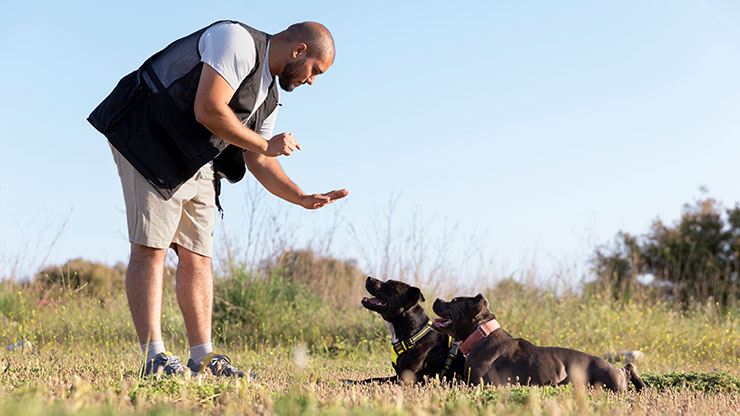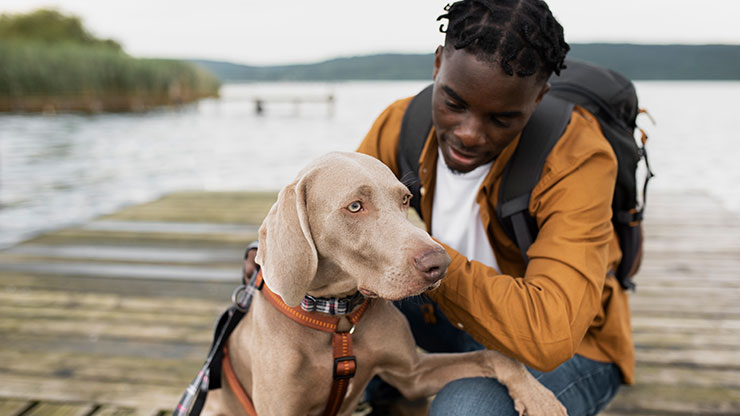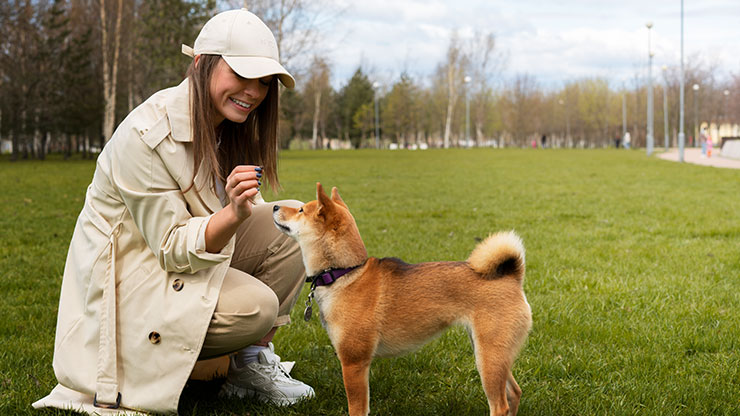
Choosing the Best In-Home Dog Trainer for Your Canine Companion
Dogs are adored members of many households. They provide company, loyalty, and unconditional affection. But owning a dog comes with a unique set of challenges, one of which is training. Whether you have a new puppy or an older dog who needs to learn new behaviors, finding the right in-home dog trainer can make all the difference. In-home dog training is a popular option for many dog owners because it allows for personalized attention and training tailored to your dog's specific needs. This type of training can be especially beneficial for dogs who are anxious or easily distracted in new environments, as it allows them to learn in the comfort and familiarity of their own home.
Many in-home trainers use a LIMA-first method and positive reinforcement techniques, ensuring a positive and supportive learning experience for your canine companion. LIMA (Least Intrusive Minimally Aversive) is an approach that avoids the use of punishment or aversive training methods. That, in turn, helps prioritize your dog’s emotional and physical well-being. This article will guide dog owners in choosing the best in-home dog trainer for their furry friends. Let’s get started.
Look for Experience and Credentials
When looking for an in-home dog trainer, check for expertise and certifications. Choose a trainer who has been working with dogs for several years and has undergone formal training. Check if the trainer has certifications or accreditations from reputable organizations like the Association of Pet Dog Trainers (APDT). Experience is important when it comes to in-home dog trainers. Choose a trainer with a proven track record of working with dogs in their home environment. They should be well-prepared to deal with any difficulties during the training.
Furthermore, look for a trainer who has undergone formal dog behavior and psychology training. This demonstrates they have the knowledge and abilities to train your pet properly. For those considering getting a dog but have never owned one before, seeking advice from experienced dog trainers can help make a decision. These trainers can guide you on which breed would best suit your lifestyle and which breeds to avoid.

Research Local Dog Trainers
When looking for an in-home dog trainer, it's a good idea to research local professionals in your area. This can help you find a trainer who is familiar with the local dog community and who may have experience working with dogs similar to yours. Hiring a local trainer can also be convenient, as they will be nearby and may be more flexible with their scheduling.
Additionally, consider reaching out to local dog training centers for recommendations. A local trainer can help you build a strong relationship with your dog and give you the tools to maintain their training over time.
Observe the Trainer’s Methods
Before hiring an in-home dog trainer, it is essential to observe their training methods. Look for techniques that encourage good behavior through LIMA-first techniques. Avoid trainers that promote punishment-based tactics, which can generate anxiety and dread in dogs. The trainer should be patient and communicate effectively with you and your dog. Also, they must be able to modify their training methods to meet your dog's unique requirements. According to an article published in The Washington Post in 2023, patience, discipline, and consistency are crucial qualities that an in-home dog trainer should possess to train a dog successfully.
Working with dogs requires patience since it takes time and practice for them to pick up new behaviors. A disciplined trainer will be able to establish clear boundaries and expectations for the dog while remaining calm and in control. Consistency is also critical, as dogs need routine and predictability in their training to fully grasp what is expected of them.
Consider Your Dog’s Specific Needs
Every dog is unique and may require different types of training. Before hiring a trainer, consider your dog's specific needs and choose a trainer with experience working with dogs with similar issues. When selecting an in-home dog trainer, consider your dog's specific needs. Choose a trainer who has dealt with dogs with problems similar to yours. For example, if your dog suffers from separation anxiety, search for a trainer who focuses on treating this condition. Additionally, look for a trainer who can adapt their training approach to fit your dog's personality and learning style.

Evaluate the Trainer’s Flexibility
Dog training at home may take a lot of time, so it's crucial to pick a trainer that can work around your schedule and is flexible. Consider a trainer who can offer evening or weekend sessions if you have a busy work schedule. Discuss your availability with the trainer before committing to their services.
Conclusion
Choosing the best in-home dog trainer for your canine companion is an important decision that requires careful consideration. When selecting a trainer, look for experience and credentials, ask for references and reviews, observe the trainer's methods, consider your dog's specific needs, and evaluate the trainer's flexibility. By considering these factors, you can find a trainer who can help you achieve your goals and give your furry friend the training they need to thrive.










